Get a group of science communicators in a room, and you’re in for a fascinating conversation. Extend that gathering for two full days, and you’ll gain insights that will reshape how you approach your work. That was my experience at Science Talk 2022.
I arrived knowing almost no one. My shift from physics and math student to science communicator coincided with the arrival of the COVID-19 pandemic—so after more than two years in the field, SciTalk ’22 was my first-ever in-person conference. Through my AAAS Mass Media Fellowship and previous online conferences, I had met other science communicators, but most of those interactions had been brief. So coming into SciTalk ’22, I was especially eager for the longer, more informal conversations that the conference would foster.
From the moment I sat down at a random table at the opening night happy hour, I knew we would never run out of things to talk about. The event was scheduled to last two hours. I stayed nearly five. I met a soon-to-be PhD chemist looking to shift into professional scicomm (Paige Kinsley), a postdoc in neuroscience (Amy Nippert), and two video creators—Ashley Diedenhofen talks about food waste on TikTok, and Patrick Kelly talks about human physiology on YouTube. Ashley and Patrick shared how the different platforms demand different approaches to both form and content. Having spent no time on TikTok myself, I appreciated Ashley’s explanation that on TikTok, highly polished content is less relatable to viewers and less likely to gain traction.
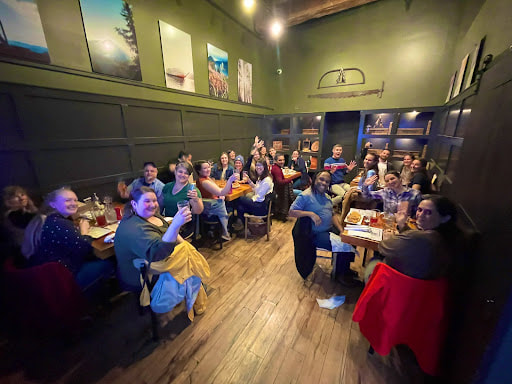
Conversations flowed organically throughout the entire conference. At meals and coffee breaks, at the poster session and the trivia night, I found that I could join any group of attendees and immediately be swept into an engaging discussion. The theme of the conference, “The many arms of science communication,” aptly described the wide range of attendees’ academic and professional backgrounds.
Many were young bench scientists just beginning to explore the world of science communication. Of those further along in their careers, some sprinkled scicomm into their work in academia, government, or industry, while others lived and breathed scicomm every day.
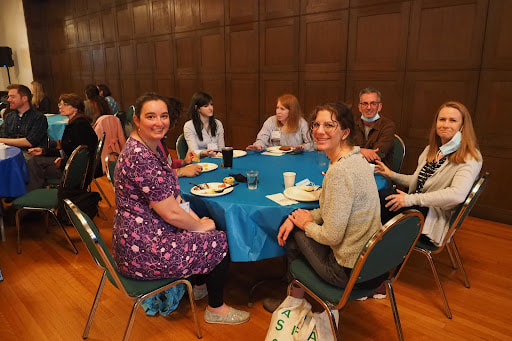
The sole in-person attendee who I had previously met on Zoom was Alex Ip, the founder and editor in chief of the nonprofit multilingual newsroom The Xylom. Alex is an undergrad at Georgia Tech, and we connected over our shared background in journalism. Another SciTalker, Melanie Peffer, intentionally embodies Ms. Frizzle to bring biology to nonscientists through her book and talks. And research chemist Christy Haynes successfully advocated for the journal Analytical Chemistry to commission a series of covers featuring Black chemists, drawn by Black artists. Christy overcame institutional inertia that echoes what I have seen in my professional life, so her story gave me one possible roadmap for achieving change from within a large organization.
I had an especially memorable conversation with Jordan Sandler, a TV meteorologist turned media trainer who is working to improve the coverage of climate change on local newscasts. He told me about the minimal—and extremely outdated—curriculum on climate change that he encountered while studying for his certificate of broadcast meteorology. No wonder, then, that most TV meteorologists avoid talking about climate change on air. Jordan also mentioned that Al Gore, as a highly polarizing political figure, was an “inconvenient messenger” for An Inconvenient Truth. How different might our public discourse be today, Jordan wondered, if a beloved celebrity like Tom Hanks had starred in the documentary instead? This reflection broadened how I think of my role as a future climate communicator. In addition to finding clear ways to explain complex concepts, I will need to forge partnerships with trusted public figures who can carry the message to their communities.
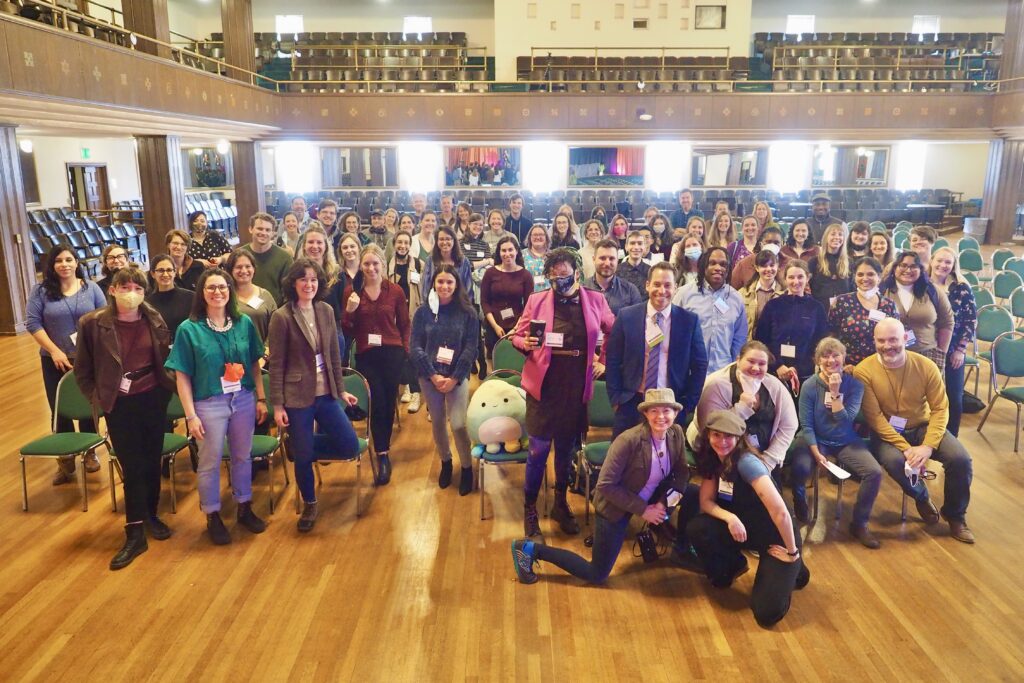
For two days, I was surrounded by people who share my passion for science communication. People who care deeply about building bridges between science and the rest of society. People who wrestle with misinformation on social media and reckon with the inequities entrenched in academia—yet remain hopeful for the future.
I left the conference hopeful, too. We are just beginning to build this community, but it is already a vibrant and multifaceted one. As the Science Talk organization metamorphoses into the Association of Science Communicators, I cannot wait to see how the reach and impact of our community expands.
Next week, I’ll be sharing some of my personal takeaways from the workshops and talks at SciTalk ’22. In the meantime, share in the comments what stood out to you from the conference, or what you hope to learn at future Science Talk gatherings!
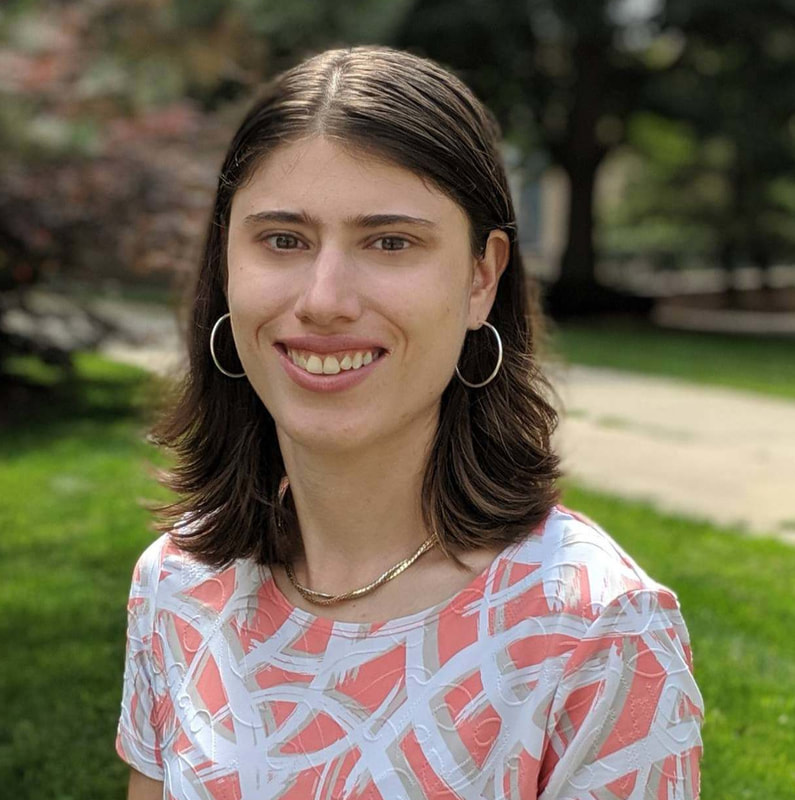
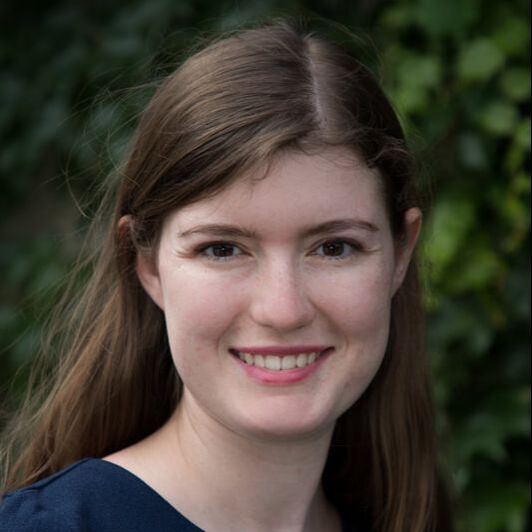

Leave a Reply